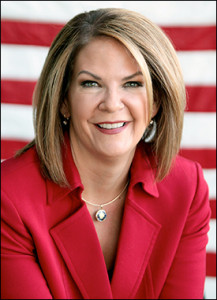By Jim Ellis
Jan. 10, 2022 — Now that the new redistricting maps have been finalized in as many as 27 states, analysts can produce more detailed data about how the new seats will perform politically.
Such is the case in Arizona, as the Phoenix-based Data Orbital firm has published a new report about the Grand Canyon State’s congressional and state legislative maps. The DO research paints a more detailed picture of what we might expect in the 2022 elections.
At first glance, it appeared that the Arizona map might be one of the nation’s most competitive. The new Data Orbital information certainly supports such a conclusion, and tells us that two incumbents actually have more difficult situations than suggested at first glance, one a possibly easier road to re-election, and a third district that will likely produce razor-thin margins for either party in at least the decade’s early elections.
It was clear that Reps. David Schweikert (R-Fountain Hills) and Tom O’Halleran (D-Sedona) were placed in more competitive situations than their current CDs yield, but the more detailed historical data finds that their respective roads to re-election are even rockier.
The Data Orbital firm measured each district through five statewide elections from 2020 and 2018, overlaid the partisan registration figures, added the new registration trends, and took into account district electorate performance in high and lower turnout situations.
Using all of this data, we see that Rep. O’Halleran clearly has the worst draw and his chances for re-election this year appear dim. His new 2nd District (previously numbered 1) went Republican in all five of the tested elections; Republicans have the edge in current and new voter registration, and the Republican candidates performed better in both high and low turnout elections.
In all, the Republican nominees averaged vote margins of more than 10 percent over their Democratic counterparts. There is no statistical measure where Democrats outperformed Republicans in the new 2nd District, which places Rep. O’Halleran in the most difficult position of all the incumbents seeking re-election.
Rep. Schweikert, who won his last re-election in the current 6th District with only 52 percent, sees a much tougher road ahead of him in 2022 within the confines of the new 1st District.
In the five tested races — 2020 presidential, 2020 Senate, 2020 congressional, 2018 gubernatorial, and 2018 attorney general — Republicans only won two. The winning percentage for the Republican victories, however, is much higher than the three Democratic victories – the Dems only scored a cumulative winning average of 1.2 percent — so Schweikert certainly has a chance of winning another term. The GOP does score an overall performance margin advantage of 4.1 percent and leads the Democrats in party registration, among new registrants, and in both low and high turnout elections.
At first glance, it appeared that Rep. Greg Stanton (D-Phoenix) would have a more difficult re-election situation than what the deeper dive numbers suggest. Democrats won four of the five tested elections, the overall vote average favors the Democratic candidates by 5.6 percentage points, and while registration breaks almost evenly among the Democrats, Republicans, and Independents, the vote performance figures suggest that the Independent sector clearly leans Democratic. While Independents overwhelming lead the new registration category, the Democrats also outperform the Republicans by 2.4 percentage points.






